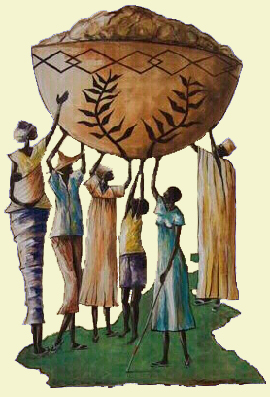Blog
Extractive Industry Helping to Develop Cameroon

[media-credit name=”Relufa.org” align=”alignleft” width=”270″] [/media-credit]Cameroon has taken a high-level political and economic decision to promote the development of its mining sector. The success of the mining sector and Cameroon’s economic emergence will ultimately depend on its ability to transform mining royalties into poverty alleviation, growth, and employment at the local and national levels.
[/media-credit]Cameroon has taken a high-level political and economic decision to promote the development of its mining sector. The success of the mining sector and Cameroon’s economic emergence will ultimately depend on its ability to transform mining royalties into poverty alleviation, growth, and employment at the local and national levels.
The debate on the management of revenue from natural resources in Cameroon has shifted from the central government level to local councils and communities. This shift is justified by the fact that local councils in the forested areas of Cameroon have been accorded the right to manage a portion of the revenue generated from forest exploitation as a result of forest sector reforms introduced by the government with the support of the World Bank.
These reforms, introduced by law No. 04/01 of January 20th, 1994, aimed to promote citizen participation in the management of revenues as well as provide social and economic benefits to offset the impacts of forest exploitation.
According to the 1994 Cameroon forest law, industrial logging companies operating in Cameroon pay an Annual Forest Royalty (RFA) which is shared between the central government, the local councils, and the local communities near forest concessions.
Yet most studies have concluded that RFA payments at the sub-national level have not led to significant social and economic development in the beneficiary communities and councils.
Today, Cameroon’s government has opted to open up its mining sector to industrial mining projects which will provide additional revenues for local councils and communities via the local mining royalty. Additionally, Cameroon is slowly undergoing a “decentralization” process whereby budgetary and administrative functions are devolving to regional and local governments.
Given Cameroon’s disappointing experience managing the RFA, will mining royalties or decentralization-related payments be managed more efficiently?
To understand the future, we look to the past.
Read More by clicking the attached link below
